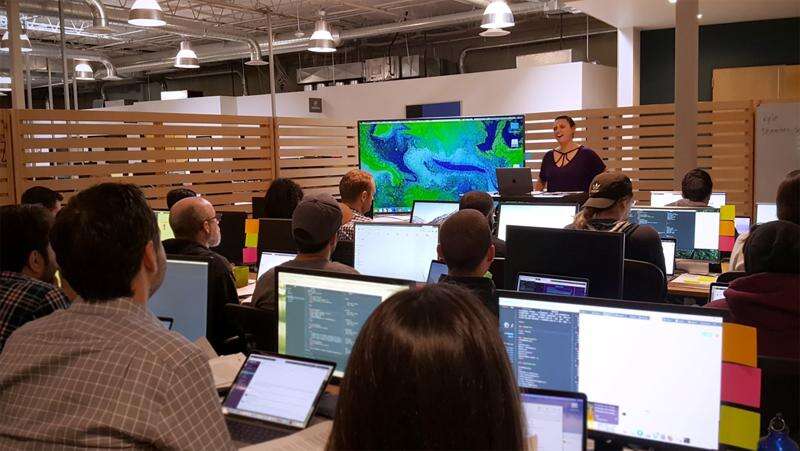Related Topics (Ads):
What can you do with coding? You can become a valuable resource to employers or even become a freelance developer. As the coding industry is exploding, learning coding skills has become an increasingly good idea for job security and career success. And the salary levels aren’t bad either. But do you need a degree to be a programmer?

Tons of Companies Offer On-The-Job, Paid Training
Take Amazon for instance. They offer technical, on-the-job, paid training to its employees who want to level up. You can keep your day job and learn how to code to start your career as a software developer.
Related Topics (Ads):
The benefits are vast for Amazon employees accepted into Amazon Technical Academy, one of nine training programs included in Upskilling 2025, Amazon’s $1.2 billion commitment to equip more than 300,000 Amazon employees with new professional skills by 2025.
Amazon Technical Academy trains employees in the essential skills needed to transition to entry-level software developer engineer roles at Amazon. The program requires no previous computer training from applicants, only a high school diploma or GED—and the fortitude to get through a rigorous nine-month, full-time program created by expert Amazon software engineers.
Related Topics (Ads):


Companies Prefer No Experience, So They Can Train & Specialize You For The Best Jobs
The most obvious path to starting a career in programming is through a computer science (C.S.) degree where one would learn a web development language (like JavaScript, Java, Python, and Ruby to name a few). But, it might surprise you that it’s actually more common for people to look into a coding bootcamp vs. a CS degree.
Related Topics (Ads):


Paid Specialized Training Leads To Bigger Bucks In Your Paycheck
Did you know that the number of U.S. college students who pursue coding degrees has been hovering around 2.5% since the early 1980s? Considering how much the tech industry has grown since then, that should shock you. We know that more programming language related jobs are being created every day, so why aren’t we seeing an increase in students who pursue a C.S. degree? This could be because many people have learned that you don’t need a degree in coding to start your programming or software developer career.
Related Topics (Ads):

How To Find The Best Companies With Paid Training Available
Times are changing and traditional schooling can no longer keep up with the ever-rising demand in the tech field. Experience matters more than education and practical knowledge prevails over theory. A good portfolio reigns supreme next to a glossy diploma, showcasing your work and experience, rather than just a traditional proof of received education.
Online courses cost less than college tuition. But even if they cost the same, you will still end up paying less because they don’t have to add up to 128 credits to earn a certificate of completion. You will also learn a lot more by doing than sitting in a classroom.
Related Topics (Ads):

Start Learning For Free Online Before You Start Your Paid Training
There are so many free resources that you can start learning online with today. They are all at your disposal. This can be very beneficial to start with, especially before getting hired with a company that offers Paid Training. You can hit the ground running with them and make an excellent first impression.
Visit Code Academy. Try Free Code Camp. Check out Khan Academy. Take Udemy classes and get certified online. Start scribbling code and forging your portfolio. The vast amount of resources online, some of which are free, will hurl you to the programming horizons of the dev world.
With less time and effort, you will build a portfolio that will launch your dev career more effectively than a diploma from a four-year school.
Related Topics (Ads):

Technical Recruiters Love It When You Have The Right Skillset & Proper Training
They will know exactly how to find you. It’s not hard. And once they find you, they will be relentless in their pursuit of you, especially when they like you. If you have the right skillset and meet all of their recruitment criteria, there’s no telling where they will stop at to get you hired.
As recruiters pore over the sea of candidate profiles during initial online screening, they will primarily use three criteria to filter candidates: work history, tech stack match, and educational background.
Each company looks for people familiar with their chosen technologies. Your online portfolio, LinkedIn, resume, etc., should detail your languages of expertise, years of experience, and use applications from completed projects.
While a tech stack match may help get you past the first hurdle, it will be more important to demonstrate a strong conceptual background during the interview. This is especially true with smaller companies and startups that will be looking for someone able to adapt quickly.
Related Topics (Ads):